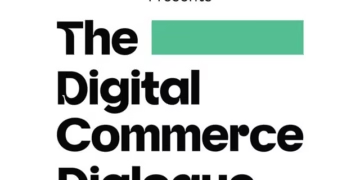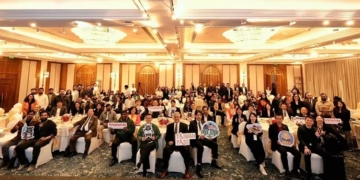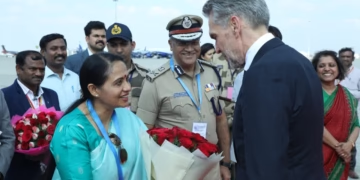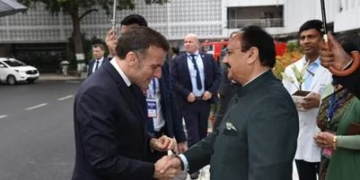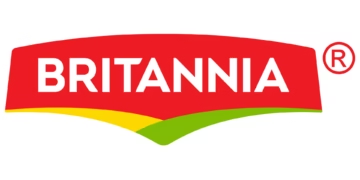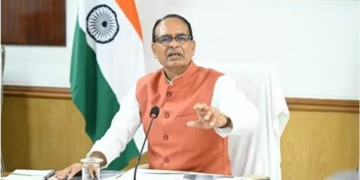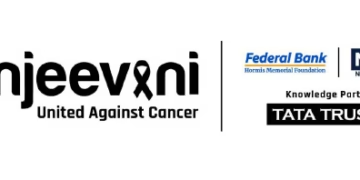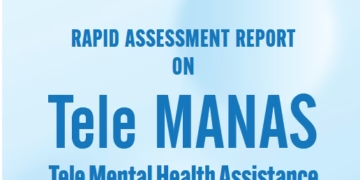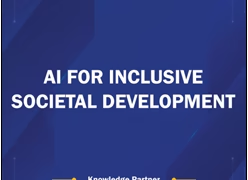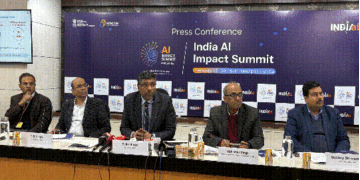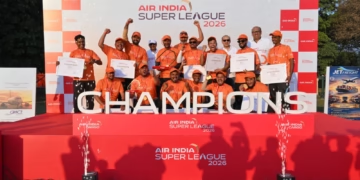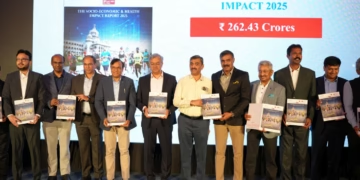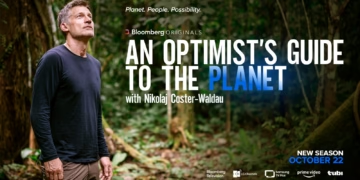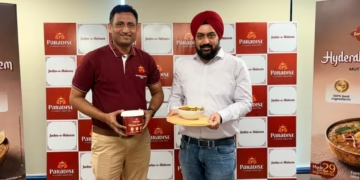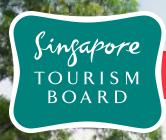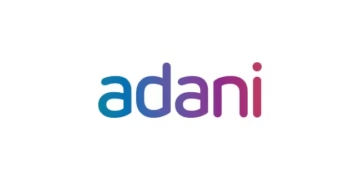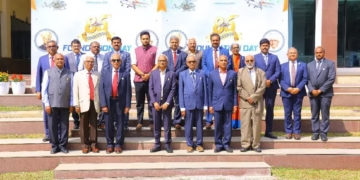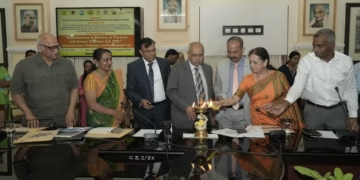Singapore, 16 February 2019 – 2018 marked another strong year for Singapore’s tourism sector, with both tourism receipts and visitor arrivals achieving new highs. The core tourism industries of BTMICE[1], Hotels, and Cruise also posted strong results.
Tourism receipts (TR) rose 1.0 per cent to S$27.1 billion[2], mainly due to growth in Visitor Arrivals (VA) across almost all of the top 15 markets[3] and higher visitor spending from all top five TR markets[4]. Record arrivals from seven markets helped boost overall VA by 6.2 per cent to 18.5 million.
Chief Executive of
Singapore, 13 February 2019 – 2018 marked another strong year for Singapore’s tourism sector, with both tourism receipts and visitor arrivals achieving new highs. The core tourism industries of BTMICE[1], Hotels, and Cruise also posted strong results.
Tourism receipts (TR) rose 1.0 per cent to S$27.1 billion[2], mainly due to growth in Visitor Arrivals (VA) across almost all of the top 15 markets[3] and higher visitor spending from all top five TR markets[4]. Record arrivals from seven markets helped boost overall VA by 6.2 per cent to 18.5 million.
Chief Executive of Singapore Tourism Board (STB), Mr Keith Tan, said, “We are pleased that Singapore’s tourism sector performed well in 2018 despite some economic uncertainties. We were fortunate to have benefited from a confluence of positive factors such as strong Asia-Pacific travel demand, increased flight connectivity to Singapore, and various high-profile events. It is also heartening to see our marketing efforts and collaborations with industry partners bearing fruit.”
Tourist spending grew but was slowed by declines in Shopping (14%), Accommodation (5%) and Food & Beverage (4%). These were partially offset by growths in Sightseeing, Entertainment & Gaming (6%) and Other TR components[5] (21%). For Other TR Components, airfare revenue rose on the back of more visitor arrivals via local-based carriers. BTMICE-related spending also increased.
Market Highlights
By Tourism Receipts (YTD 3Q2018)
From January to September 2018, growth was registered across all of Singapore’s top five TR source markets. India (18%), Indonesia (8%) and China (3%) posted the highest year-on-year absolute growth in Tourism Receipts excluding Sightseeing, Entertainment & Gaming (TR ex-SEG). India led in TR ex-SEG growth due to a higher spending on Accommodation. For Indonesia, the growth could be attributed to greater spend on Other TR components. TR ex-SEG growth from China was driven by a double-digit growth in leisure visitors.
By International Visitor Arrivals (2018)
14 out of Singapore’s top 15 markets registered growth in 2018 with seven – China, India, Philippines, UK, USA, Vietnam, and Germany – hitting record-high visitor arrivals.
China (6%), Indonesia (2%) and India (13%) continued to be the top three contributing markets for visitor arrivals to Singapore. For China and India, there was growth from both tier one and tier two cities[6], due to strong travel demand and increased flight connectivity. In particular, cruise arrivals from India spiked 27 per cent as more Indian travellers took up new cruise offerings such as Genting Dream and Royal Caribbean Cruises’ Voyager of the Seas.
Mr Suen Tat Yam, Director of tour operator Monster Day Tours, said: “Since Monster Day Tours started operations in May 2017, we’ve seen tour bookings grow from one or two a week, to at least one per day, with most of our customers coming from the US and UK. We believe our better business is due to more visitors from these markets, and the greater variety of tour product offerings in Singapore. We are optimistic that demand for tours will grow, as visitors learn more about the interesting products our tour operators have to offer.”
KEY INDUSTRY PERFORMANCE
BTMICE Industry Performance (YTD 3Q2018)
From January to September 2018, TR ex-SEG from the Business Travel and Meetings, Incentive Travel, Conventions and Exhibitions (BTMICE) sector rose by 10 per cent to S$3.44 billion, compared to the same period in 2017. This was driven by the growth in BTMICE visitor arrivals, which rose 14 per cent year-on-year to hit two million.
Singapore’s status as a top MICE city was further reinforced by playing host to notable events such as the Bloomberg New Economy Forum, which was attended by world leaders and global CEOs, and mega Asian technology exhibition ConnecTechAsia.
Hotel Industry Performance
The hotel industry continued to do well in 2018, with all indicators registering growth. Total gazetted room revenue rose by 7.4 per cent to reach S$4.0 billion in 2018 while hotel occupancy rose by 1.2 percentage points to 86 per cent. Average room rate increased 0.9 per cent year-on-year to $219 while revenue per available room increased 2.4 per cent to reach $189 in 2018.
Cruise Industry Performance
2018 was a strong year for the cruise industry, with total passenger throughput at a high of 1.87 million – a 35 per cent increase from 2017. The higher passenger throughput was due to the year-round deployment of Genting Dream and extended sailings from Royal Caribbean’s Mariner of the Seas and Voyager of the Seas.
“Our partnership with STB and the Changi Airport Group to promote Genting Dream’s Singapore sailings has borne fruit. Genting Dream has had a successful inaugural year-round homeport season and we have seen strong demand from cruise passengers in the region. With even bigger ships such as Dream Cruises’ Global-class vessels joining our fleet from 2021, we will continue to work with STB to grow the cruise industry in Singapore,” said Mr Kent Zhu, President, Genting Cruise Lines.
2018 Highlights
Built Brand Affinity and Strategic Partnerships
STB continued its next wave of marketing activities, building on the momentum of the Passion Made Possible global tourism campaign. STB targeted specific passion tribes[7] in emerging markets such as Myanmar, Vietnam and Russia, organising various activities such as a pop-up art and augmented reality technology showcase , karaoke booths and exclusive parties to shine the spotlight on what Singapore has to offer in arts and culture, as well as in nightlife and entertainment.
To further enhance the visitor experience and drive spending, STB also embarked on new strategic marketing partnerships with partners such as Changi Airport Group, Alipay, Spotify and Sentosa Development Corporation. These partnerships led to improvements such as more cashless payments, attractive stopover packages and destination-related music recommendations for overseas visitors.
Enhanced Destination Attractiveness
Last year, STB anchored branded events that included Disney’s Marvel-themed events, grew local ones like the Singapore Cocktail Festival, and welcomed new events such as the PVP Esports Championship. STB also supported the creation of more authentic local experiences, which included tours themed around Passion Made Possible.
Increased Industry Competitiveness
Several key initiatives were also introduced to help drive industry competitiveness.
One example was STB’s Business Improvement Fund, which supported some 100 projects that enabled various hotels and travel agents to implement technology solutions that drove business productivity and improved visitor experience.
STB also worked with other agencies, industry associations and training providers to jointly develop the Skills Framework for Tourism to attract and retain talent within the industry. To encourage more innovative tourism products, the Board also introduced the niche travel agent licence, which lowers financial barriers to entry for conducting tours within Singapore without accommodation, as well as de-regulated walking tours in Singapore.
2019 Outlook and Forecast
For 2019, STB forecasts tourism receipts to be in the range of S$27.3 to S$27.9 billion (+1 to +3%) and international visitor arrivals to be in the range of 18.7 to 19.2 million (+1 to +4%).
Headwinds are expected in the year ahead, due to the volatility of the global political and economic environment, and stiffer regional competition, However, STB remains cautiously optimistic, and anticipates strong tourism growth particularly from Singapore’s key visitor source markets.
STB will continue to grow and develop the tourism sector with new offerings and refreshed concepts to ensure Singapore remains an attractive destination. For example, as part of STB’s three-year global partnership with William Reed Business Media, a spotlight will be shone on Singapore’s thriving dining and cocktail scene through a series of “50 Best” F&B-related events in Singapore.
Please download the STB Year-in-Review presentation deck and infographics from the following links:
Annex A – STB Year-in-Review presentation
Annex B – STB Year-in-Review infographics
[1] Business Travel and Meetings, Incentive Travel, Conventions and Exhibitions.
[2] Preliminary estimate for full year 2018.
[3] For 2018, the top 15 visitor arrival markets were China, Indonesia, India, Malaysia, Australia, Japan, Philippines, USA, South Korea, Vietnam, United Kingdom, Thailand, Hong Kong SAR, Taiwan and Germany.
[4] For 2018, the top five tourism receipts markets were China, Indonesia, India, Australia and Japan.
[5] Other TR components include expenditure on airfares on Singapore-based carriers, port taxes, local transportation, business, medical, education and transit visitors.
[6] For China, tier one cities include Beijing, Chengdu, Guangzhou, Hangzhou, Shanghai and Shenzhen. Tier two Chinese cities include Changsha, Chongqing, Fuzhou, Haikou, Jinan, Kunming, Nanjing, Nanning, Ningbo, Qingdao, Shenyang, Tianjin, Wuhan, Xi’an, Xiamen and Zhengzhou.
For India, tier one cities include Bangalore, Chennai, Delhi, Gurgaon and Mumbai. Tier two Indian cities include Ahmedabad, Amritsar, Calcutta, Chandigarh, Coimbatore, Hyderabad, Lucknow, Jaipur, Kochi, Madurai, Pune, Thiruvananthapuram, Tiruchirapally and Visakhapatnam.
[7] Passion Tribes is a concept introduced by STB to group potential visitors based on their lifestyles, interests & what they travel for. There are 7 major Passion Tribes: Foodie, Collector, Explorer, Socialiser, Progressor, Action Seeker, Culture Shaper. It is STB’s way of attracting potential visitors by speaking to their passions and interests and how they could realise them here in Singapore.
), Mr Keith Tan, said, “We are pleased that Singapore’s tourism sector performed well in 2018 despite some economic uncertainties. We were fortunate to have benefited from a confluence of positive factors such as strong Asia-Pacific travel demand, increased flight connectivity to Singapore, and various high-profile events. It is also heartening to see our marketing efforts and collaborations with industry partners bearing fruit.”
Tourist spending grew but was slowed by declines in Shopping (14%), Accommodation (5%) and Food & Beverage (4%). These were partially offset by growths in Sightseeing, Entertainment & Gaming (6%) and Other TR components[5] (21%). For Other TR Components, airfare revenue rose on the back of more visitor arrivals via local-based carriers. BTMICE-related spending also increased.
Market Highlights
By Tourism Receipts (YTD 3Q2018)
From January to September 2018, growth was registered across all of Singapore’s top five TR source markets. India (18%), Indonesia (8%) and China (3%) posted the highest year-on-year absolute growth in Tourism Receipts excluding Sightseeing, Entertainment & Gaming (TR ex-SEG). India led in TR ex-SEG growth due to a higher spending on Accommodation. For Indonesia, the growth could be attributed to greater spend on Other TR components. TR ex-SEG growth from China was driven by a double-digit growth in leisure visitors.
By International Visitor Arrivals (2018)
14 out of Singapore’s top 15 markets registered growth in 2018 with seven – China, India, Philippines, UK, USA, Vietnam, and Germany – hitting record-high visitor arrivals.
China (6%), Indonesia (2%) and India (13%) continued to be the top three contributing markets for visitor arrivals to Singapore. For China and India, there was growth from both tier one and tier two cities[6], due to strong travel demand and increased flight connectivity. In particular, cruise arrivals from India spiked 27 per cent as more Indian travellers took up new cruise offerings such as Genting Dream and Royal Caribbean Cruises’ Voyager of the Seas.
Mr Suen Tat Yam, Director of tour operator Monster Day Tours, said: “Since Monster Day Tours started operations in May 2017, we’ve seen tour bookings grow from one or two a week, to at least one per day, with most of our customers coming from the US and UK. We believe our better business is due to more visitors from these markets, and the greater variety of tour product offerings in Singapore. We are optimistic that demand for tours will grow, as visitors learn more about the interesting products our tour operators have to offer.”
KEY INDUSTRY PERFORMANCE
BTMICE Industry Performance (YTD 3Q2018)
From January to September 2018, TR ex-SEG from the Business Travel and Meetings, Incentive Travel, Conventions and Exhibitions (BTMICE) sector rose by 10 per cent to S$3.44 billion, compared to the same period in 2017. This was driven by the growth in BTMICE visitor arrivals, which rose 14 per cent year-on-year to hit two million.
Singapore’s status as a top MICE city was further reinforced by playing host to notable events such as the Bloomberg New Economy Forum, which was attended by world leaders and global CEOs, and mega Asian technology exhibition ConnecTechAsia.
Hotel Industry Performance
The hotel industry continued to do well in 2018, with all indicators registering growth. Total gazetted room revenue rose by 7.4 per cent to reach S$4.0 billion in 2018 while hotel occupancy rose by 1.2 percentage points to 86 per cent. Average room rate increased 0.9 per cent year-on-year to $219 while revenue per available room increased 2.4 per cent to reach $189 in 2018.
Cruise Industry Performance
2018 was a strong year for the cruise industry, with total passenger throughput at a high of 1.87 million – a 35 per cent increase from 2017. The higher passenger throughput was due to the year-round deployment of Genting Dream and extended sailings from Royal Caribbean’s Mariner of the Seas and Voyager of the Seas.
“Our partnership with STB and the Changi Airport Group to promote Genting Dream’s Singapore sailings has borne fruit. Genting Dream has had a successful inaugural year-round homeport season and we have seen strong demand from cruise passengers in the region. With even bigger ships such as Dream Cruises’ Global-class vessels joining our fleet from 2021, we will continue to work with STB to grow the cruise industry in Singapore,” said Mr Kent Zhu, President, Genting Cruise Lines.
2018 Highlights
Built Brand Affinity and Strategic Partnerships
STB continued its next wave of marketing activities, building on the momentum of the Passion Made Possible global tourism campaign. STB targeted specific passion tribes[7] in emerging markets such as Myanmar, Vietnam and Russia, organising various activities such as a pop-up art and augmented reality technology showcase , karaoke booths and exclusive parties to shine the spotlight on what Singapore has to offer in arts and culture, as well as in nightlife and entertainment.
To further enhance the visitor experience and drive spending, STB also embarked on new strategic marketing partnerships with partners such as Changi Airport Group, Alipay, Spotify and Sentosa Development Corporation. These partnerships led to improvements such as more cashless payments, attractive stopover packages and destination-related music recommendations for overseas visitors.
Enhanced Destination Attractiveness
Last year, STB anchored branded events that included Disney’s Marvel-themed events, grew local ones like the Singapore Cocktail Festival, and welcomed new events such as the PVP Esports Championship. STB also supported the creation of more authentic local experiences, which included tours themed around Passion Made Possible.
Increased Industry Competitiveness
Several key initiatives were also introduced to help drive industry competitiveness.
One example was STB’s Business Improvement Fund, which supported some 100 projects that enabled various hotels and travel agents to implement technology solutions that drove business productivity and improved visitor experience.
STB also worked with other agencies, industry associations and training providers to jointly develop the Skills Framework for Tourism to attract and retain talent within the industry. To encourage more innovative tourism products, the Board also introduced the niche travel agent licence, which lowers financial barriers to entry for conducting tours within Singapore without accommodation, as well as de-regulated walking tours in Singapore.
2019 Outlook and Forecast
For 2019, STB forecasts tourism receipts to be in the range of S$27.3 to S$27.9 billion (+1 to +3%) and international visitor arrivals to be in the range of 18.7 to 19.2 million (+1 to +4%).
Headwinds are expected in the year ahead, due to the volatility of the global political and economic environment, and stiffer regional competition, However, STB remains cautiously optimistic, and anticipates strong tourism growth particularly from Singapore’s key visitor source markets.
STB will continue to grow and develop the tourism sector with new offerings and refreshed concepts to ensure Singapore remains an attractive destination. For example, as part of STB’s three-year global partnership with William Reed Business Media, a spotlight will be shone on Singapore’s thriving dining and cocktail scene through a series of “50 Best” F&B-related events in Singapore.
Please download the STB Year-in-Review presentation deck and infographics from the following links:
Annex A – STB Year-in-Review presentation
Annex B – STB Year-in-Review infographics
[1] Business Travel and Meetings, Incentive Travel, Conventions and Exhibitions.
[2] Preliminary estimate for full year 2018.
[3] For 2018, the top 15 visitor arrival markets were China, Indonesia, India, Malaysia, Australia, Japan, Philippines, USA, South Korea, Vietnam, United Kingdom, Thailand, Hong Kong SAR, Taiwan and Germany.
[4] For 2018, the top five tourism receipts markets were China, Indonesia, India, Australia and Japan.
[5] Other TR components include expenditure on airfares on Singapore-based carriers, port taxes, local transportation, business, medical, education and transit visitors.
[6] For China, tier one cities include Beijing, Chengdu, Guangzhou, Hangzhou, Shanghai and Shenzhen. Tier two Chinese cities include Changsha, Chongqing, Fuzhou, Haikou, Jinan, Kunming, Nanjing, Nanning, Ningbo, Qingdao, Shenyang, Tianjin, Wuhan, Xi’an, Xiamen and Zhengzhou.
For India, tier one cities include Bangalore, Chennai, Delhi, Gurgaon and Mumbai. Tier two Indian cities include Ahmedabad, Amritsar, Calcutta, Chandigarh, Coimbatore, Hyderabad, Lucknow, Jaipur, Kochi, Madurai, Pune, Thiruvananthapuram, Tiruchirapally and Visakhapatnam.
[7] Passion Tribes is a concept introduced by STB to group potential visitors based on their lifestyles, interests & what they travel for. There are 7 major Passion Tribes: Foodie, Collector, Explorer, Socialiser, Progressor, Action Seeker, Culture Shaper. It is STB’s way of attracting potential visitors by speaking to their passions and interests and how they could realise them here in Singapore.


